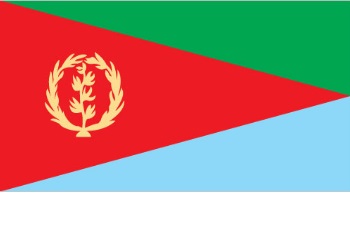A report from our Eritrean partner:
After Ethiopia appointed a new prime minister, Dr. Abiy Ahmed Ali, in April 2018, things started to change quickly in that country and their neighbours.
Dr. Abiy Ahmed Ali has a Muslim father and an Orthodox Christian mother. Abiy is a member of the Full Gospel Ethiopian church. He was raised by his mother and had little contact with his father.
When Abiy was appointed, Ethiopia was suffering much civil unrest. Most of the trouble was in the Oromo and Amhara tribe areas. These two tribes make up almost 55% of the Ethiopian population and they thought the government (which was from the minority Tigray tribe) was discriminating against the majority tribes. This civil unrest brought Abiy into power. Abiy is from the Oromo tribe on his father’s side but his mother is, I think, from the Amhara.
After his appointment, the new prime minister released thousands of political prisoners and fired corrupt and abusive government and prison officials. He appointed new ministers and focused his agenda on peace, forgiveness and inclusion. He also promised to end the war with Eritrea by implementing an 18-year-old peace deal between the two countries.
Ethiopia and Eritrea were at war between 1998 and 2000 over a border dispute which killed over 100,000 people on both sides. The border conflict was supposed to be resolved in 2000 after the United Nations made a peace deal ruling which was final and binding. At the time Eritrea accepted the ruling but Ethiopia said they accepted it in principle, but they needed to talk more first. Eritrea said no more talking, it is time for action so, unfortunately, the peace agreement was not implemented. This deadlock resulted in a massive military build-up by both countries.
When Abiy was appointed as prime minister, the Eritrean president (Isaias Afewerki) did not expect anything new from the new premier. Nevertheless, when the prime minister said that he accepted the UN ruling without any precondition, the Eritrean president agreed to meet and both countries are now working to open the border and normalise their relationship. In July 2018 Ethiopian Air Lines started to fly again between the two countries.
The Eritrean prisoners situation
So far nothing has really changed, but in July 2018, 35 prisoners were released from Mai Sirwa prison. Most of these prisoners were arrested 4½ years ago and they were in Me’etr prison until a year ago. These prisoners had signed forms agreeing not to participate in meetings organised by any of the Eritrean underground churches. In normal circumstances this would have secured their release, but it did not happen immediately. Actually it created friction between those who signed and those who did not. Both groups had to live together in a small courtyard for years. I think this was done by the government to divide the Christian prisoners, and it worked. Now we know that 400 Christian prisoners are still in Eritrean prisons, but this number does not include prisoners who are held by the army or in the smaller police posts.
Now that the border is open many Ethiopian Christians are planning to go to Eritrea. This will cause problems for the Eritrean government. Ethiopians and Eritreans look alike and share the same culture and language. We must wait and see what happens to the church and prisoners of faith in Eritrea. The first flight to Eritrea carried a well-known Ethiopian pastor and hundreds of Eritrean Christians waited for him at the airport where they welcomed him with dancing and singing and escorted him all the way to his hotel. So far the Eritrean government has not reacted against this demonstration of faith; however, we are worried many of the underground Christians will have become exposed during this visit. We warned our workers not to go to this event as we were concerned that the Eritrean government would use it to identify underground church leaders.
Where is this situation taking us?
Ethiopia is doing great politically, but from the Eritrean perspective it is just one man – the new prime minister Dr Abiy Ahmed Ali – who is doing everything. In spite of this both countries have been signing new economic and political agreements. Since the Eritrean news media remains controlled by the government, Eritreans can still only learn about changes in their country by listening to and watching Ethiopian news broadcasts and this leaves them nervous about what the future holds.
